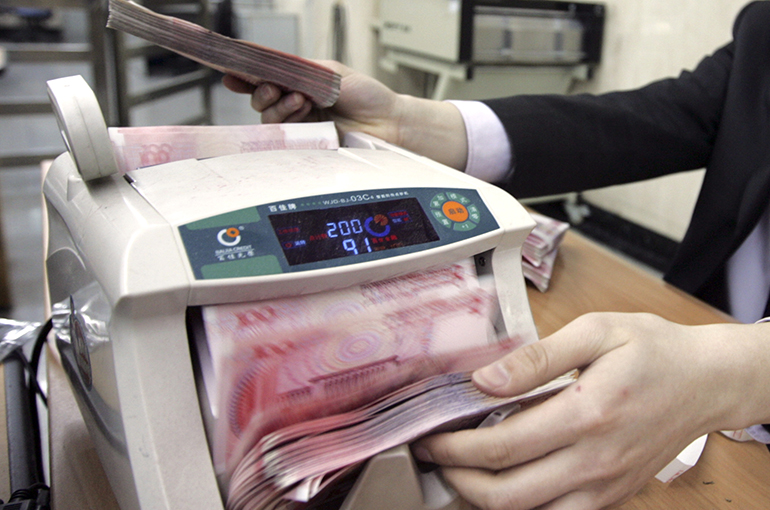 China Should Pull Policy Levers to Lift Undervalued Yuan, Think Tank Says
China Should Pull Policy Levers to Lift Undervalued Yuan, Think Tank Says(Yicai) July 28 -- Weak domestic demand has been the main cause of the Chinese yuan’s 15 percent depreciation since 2022, so robust and timely counter‑cyclical policies are needed to restore the currency to fair value, according to a new report by one of China's most influential financial think tanks.
Domestic demand could weaken further this half amid tariff strains, a sluggish property sector, and limited fiscal resources, after China’s economy grew 5.3 percent in the first half, the report by China Finance 40 Forum said.
To address this, the government should issue an additional CNY2.3 trillion (USD320.8 billion) in treasury bonds to ensure broad fiscal expenditure targets are met, ramp up public investment by focusing on urban renovation projects, and further trim policy interest rates to improve inflation expectations, said Zhang Bin, a senior researcher at the CF40.
These steps are also a necessary condition for balancing private sector savings and investments, Zhang added.
The exchange rate is mainly determined by how yuan assets stack up against overseas assets in terms of returns, rather than the amount of foreign exchange obtained by exports, Zhang said. He noted the stark divergence between China’s record trade surpluses and the yuan’s depreciation since 2022, evidence that the currency is now undervalued.
If exchange rate movements are primarily driven by financial asset flows rather than trade in goods and services, relying on the exchange rate as a price adjustment mechanism will not necessarily lead to a more efficient allocation of resources, he pointed out.
Zhang warned against relying on currency devaluation to offset tariff strains, as that could trigger unwelcome chain reactions. In the short term, he recommended allowing greater exchange rate flexibility while firmly defending a floor of CNY7.20 per dollar to prevent market distortions. But the real remedy lies in bolstering domestic demand, he added.
The yuan is undergoing two structural shifts, according to Miao Yanliang, a member of the CF40 and chief strategist at investment bank China International Capital. First, a reversal of market expectations, such as when the United States rolled out reciprocal tariffs in April -- the yuan started to appreciate, rather than weaken.
Second, China is entering a low-interest-rate environment, where the redback is expected to become a low-yield currency in the long term, laying the ground for its internationalization, he said.
On the topic of stablecoins, Miao said they are essentially infrastructure backed by fiat currencies, adding that they tend to form monopolies as they scale up, so policymakers should proceed with caution. He suggested cautiously piloting offshore yuan stablecoins in Hong Kong, given their infrastructure role and scale effects.
CF40 Executive Dean Guo Kai argued that onshore stablecoins should take priority, under strict regulation, to avoid missing the window.
Established in 2008, the CF40 brings together more than 300 experts from government agencies, research institutions, and business organizations.
Editor: Kim Taylor